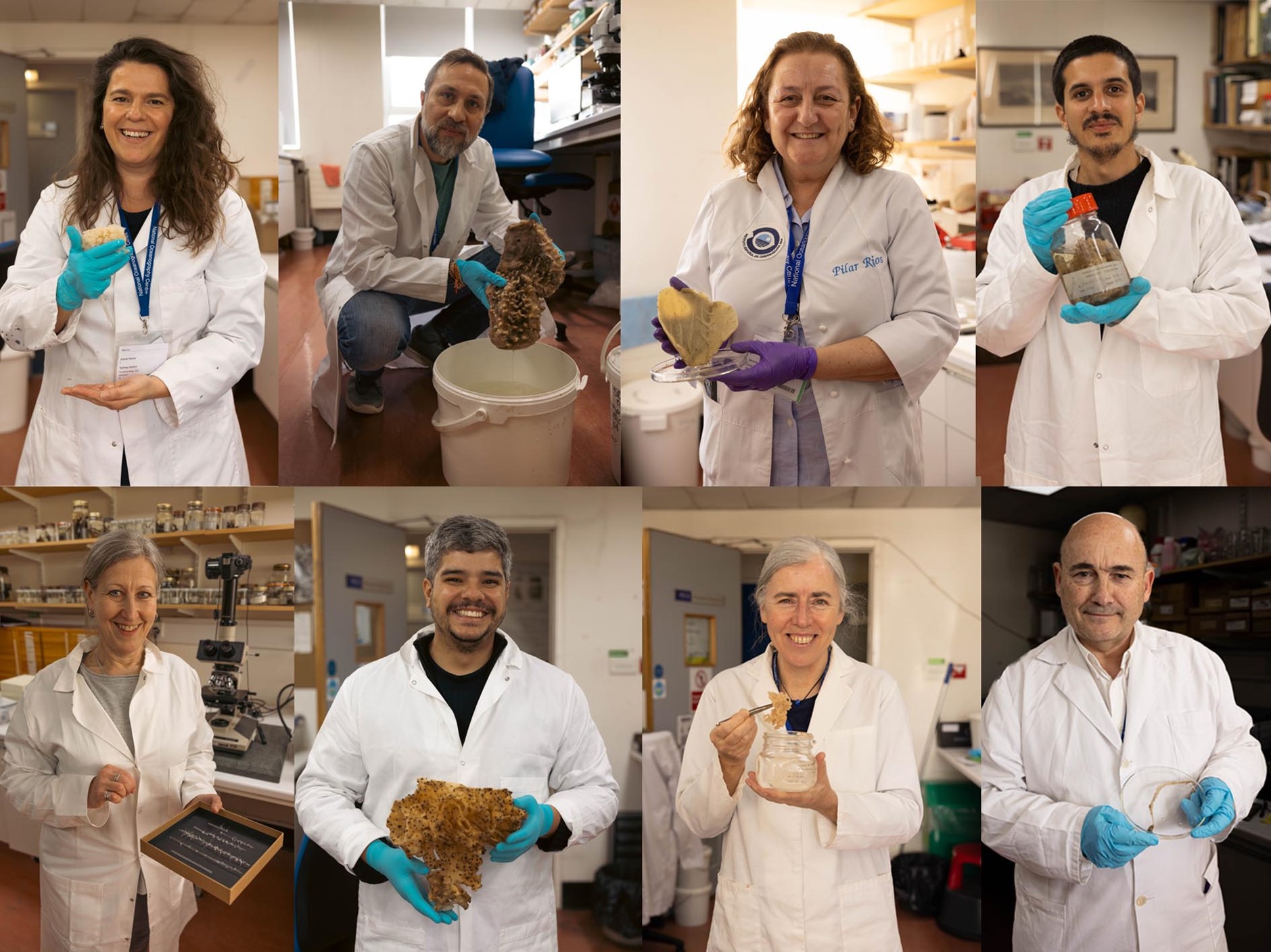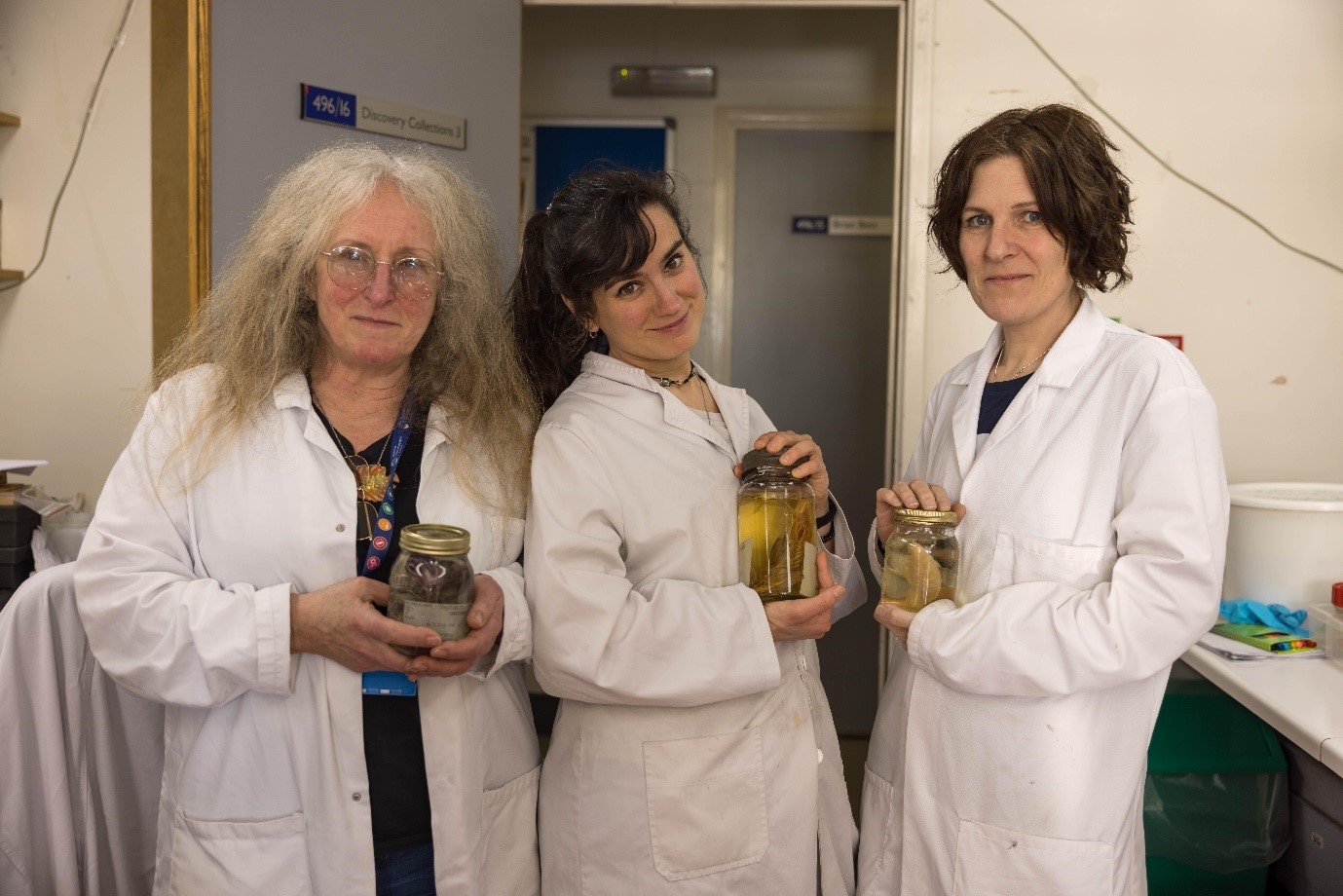Author: Dr Tammy Horton (Follow Tammy on 'X': @tammy_horton #DiscoveryCollections)

Image of the Sponge Taxonomic Experts (Clockwise from top left): Joana Xavier (CIIMAR - University of Porto, Portugal), Paco Cárdenas (Museum of Evolution, Uppsala University, Sweden), Pilar Rios (IEO-Gijón, Gijón, Spain), Andreu Santín (CIIMAR - University of Porto, Portugal), Javier Cristobo (IEO-Gijón, Gijón , Spain), Christine Morrow (Queens University, Belfast, Northern Ireland), Celso Domingos (CIIMAR - University of Porto, Portugal), Julie Light (Glass Artist, UK).
A fantastic week of collaborative work took place from the 4th-8th March 2024, with seven invited taxonomic experts attending to share their knowledge of the Porifera (Sponges) with the Discovery Collections Team at the National Oceanography Centre, Southampton. The Sponge Identification & Training Workshop was part of DEEPEND (DEEPEND: Deep-ocean resources and biodiscovery), a project funded by the UK DEFRA Global Centre on Biodiversity for Climate Programme. The DEEPEND project is a collaborative effort to study the societal value of biodiversity in the deep-sea.
Marine organisms are a promising resource for useful natural products such as medicines. The potential use of biodiversity - or marine genetic resources (MGR) - has yet to be thoroughly explored in the deep sea. These organisms offer the exciting potential discovery of new gene clusters that direct the formation of enzymes and small molecules. These could have useful biotechnological and pharmaceutical applications, including the discovery of novel antibiotics, coming at a time when society faces an antimicrobial resistance crisis. Marine sponges are known to be important sources of novel natural products, yet the identification of sponge taxa (many of which are new to science) requires specialist taxonomic expertise.
The workshop aimed to provide training for the Discovery Collections Team and improved taxonomic identifications for abyssal sponge taxa currently held in the Discovery Collections at NOC. These materials largely originate from the Porcupine Abyssal Plain Sustained Observatory, Whittard Canyon, Mid Atlantic Ridge and Haig Fras areas in the North Atlantic, and also selected specimens from the Central Pacific in the Clarion Clipperton Zone, collected during the SMARTEX project.
During the week we had presentations from the experts of the SponBIODIV project on each of the major sponge groups, and hands-on laboratory training in the preparation of sponge spicules for microscopic examination. The aims of the workshop were met with ease, with over 200 identifications made during the week and a workshop report is now in preparation detailing the results. A number of publications are also planned summarising the findings of the workshop. In addition to the incredible science findings, we also enjoyed making new connections and had a lot of fun learning from our new ‘sponger’ friends. We were all amazed by the microscopic beauty of the sponge spicules, and our resident glass artist, Julie Light, had plenty of inspiration and even created some glass spicules to delight the spongers!
Learn more about DEEPEND: https://www.nhm.ac.uk/our-science/research/projects/deep-sea-systematics-ecology/deepend.html

Image: The Discovery Collections Team (Left to Right) Amanda Serpell-Stevens, Georgina Valls Domedel & Tammy Horton.